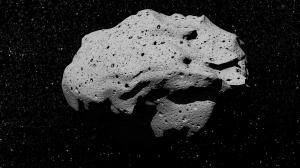In 2024, the Geminids will peak on the night between Dec 13–14
December Meteor Shower
The Geminids are considered to be one of the most spectacular meteor showers of the year, with the possibility of sighting around 120 meteors per hour at its peak, which is on December 13 or 14, depending on your time zone.
The shower owes its name to the constellation Gemini because the meteors seem to emerge from this constellation in the sky.
Geminids 2024: How to see the shooting stars
An Asteroid Meteor Shower
Unlike most other meteor showers, the Geminids are not associated with a comet but with an asteroid: the 3200 Phaethon. The asteroid takes about 1.4 years to orbit the Sun.
Astronomical terms and definitions
What Time is the Meteor Shower Tonight
The table is updated daily when the Geminids are active and shows the position of the radiant in the sky for the upcoming night. The Geminids will be active starting Dec 4, 2024. Use the date drop down above the Interactive Meteor Shower Sky Map to change dates.
| Geminids meteor shower for Columbus (Night between December 15 and December 16) | ||
|---|---|---|
| Time | Azimuth/Direction | Altitude |
| Sun 7:00 pm | 52° | 6.4° |
| Sun 8:00 pm | 60° | 15.9° |
| Sun 9:00 pm | 68° | 26.2° |
| Sun 10:00 pm | 75° | 37.0° |
| Sun 11:00 pm | 83° | 48.3° |
| Mon 12:00 midnight | 92° | 59.8° |
| Mon 1:00 am | 105° | 71.1° |
| Mon 2:00 am | 141° | 81.0° |
| Mon 3:00 am | 225° | 80.3° |
| Mon 4:00 am | 256° | 70.1° |
| Mon 5:00 am | 269° | 58.7° |
| Mon 6:00 am | 278° | 47.2° |
| Mon 7:00 am | 285° | 36.0° |
| Mon 8:00 am | 293° | 25.1° |
Direction to see the Geminids in the sky:
- Azimuth is the direction, based on true north; a compass might show a slightly different value.
- Altitude is height in degrees over horizon.
How to See the Geminids
You don't need any special equipment or a lot of skills to view a meteor shower. Even though all you really need is a clear sky, lots of patience, and our handy Interactive Meteor Shower Sky Map with a visibility conditions meter to see a meteor shower, the following tips can help maximize your shooting star viewing experience.
- Find a secluded viewing spot, away from the city lights. Once at the venue, your eyes may take 15 to 20 minutes to get used to the dark.
- Dress for the weather, and make sure you are comfortable, especially if you plan to stay out long. Bring a blanket or a comfortable chair with you—meteor watching can be a waiting game.
- Once you have found your viewing spot, lie down on the ground and look at the sky. You can use our Interactive Meteor Shower Sky Map or the table above to find the direction of the radiant; the higher the radiant is above the horizon, the more meteors you are likely to see.
- Meteor showers appear to originate from the radiant, but meteors can appear in any part of the sky.



